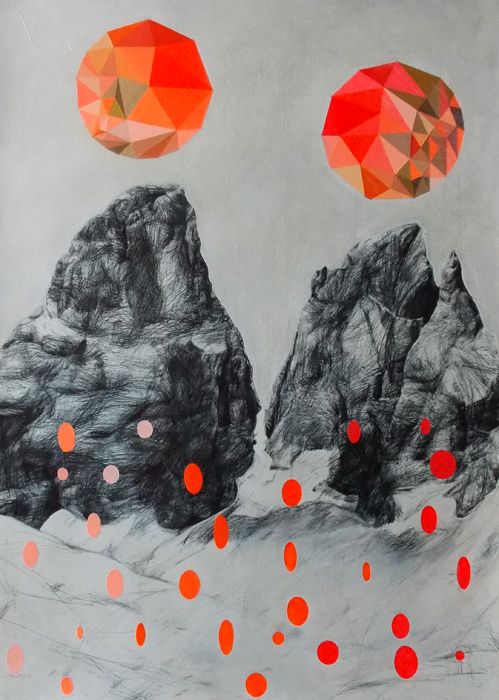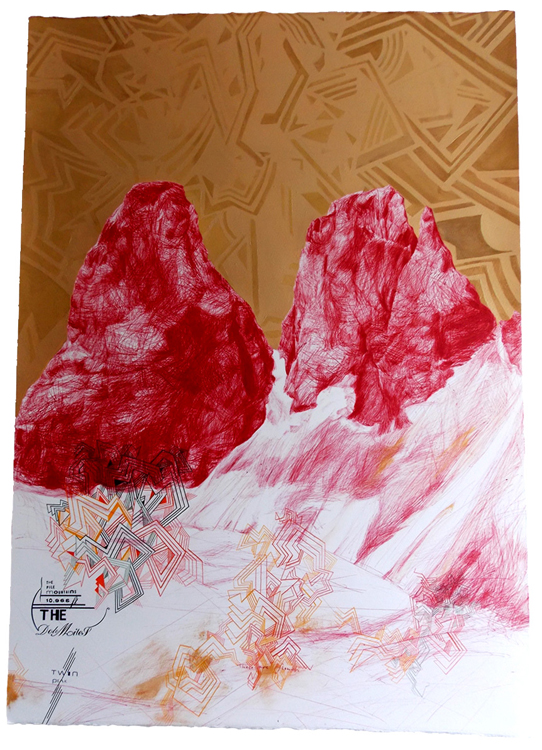interview
EMMA HARDING
artist, writer, illustrator
︎ London/UKmay 08, 2020
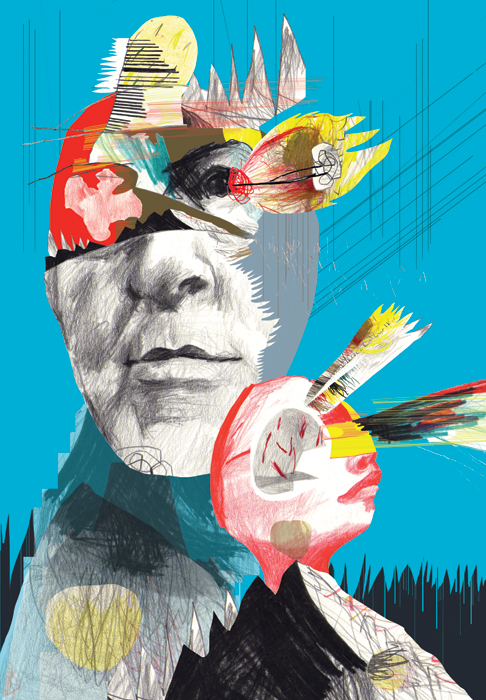
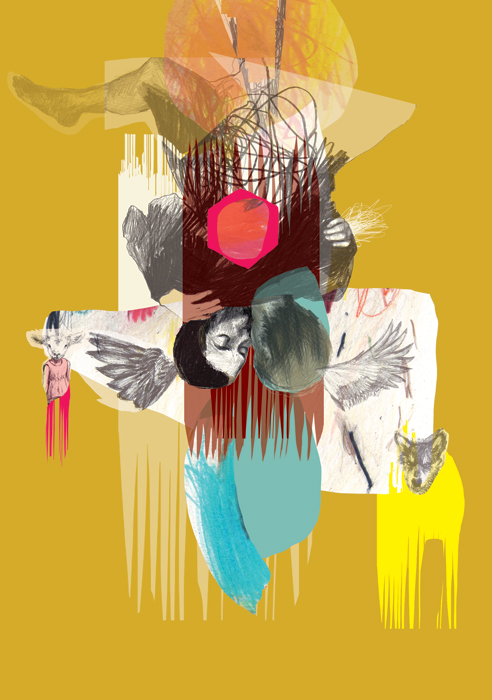
Could you please introduce yourself a little? Where did you grow up, and what were some of your first art experiences?
I was born in South London but moved to a village in semi-rural Kent when I was two. I loved it because I grew up within reach of fields and animals and roamed around in a daydream.
All I remember is having an urge to draw and make things. Maybe from as young as five I loved all forms of creativity, especially music, but drawing was the easiest to pursue on my own. I don’t come from an openly artistic family so the secretive, individualism of it suited me. I do remember making a drawn book of animals, which I copied (almost page for page) from an existing animal book. I still have the original book but not the one I made. I was overly proud of my drawings and a miniature stapler that I used to staple the book together, not with one staple but a fresh one each time I added a page. It was heavy and immensely ugly.
On your website you say that you are an artist, writer, and illustrator. In that order?
The order of the three, which could also include filmmaking (but I left that off in an attempt to look sane and focused!), is ever fluid and one day I am hoping that I will no longer see it as a dilemma.
I suspect it is due to my ever shifting source of limited finances. I know it is an artist cliché but meaningful financial survival is a difficulty – without filling up ten pages about what that difficulty consists of – it means that when finances are shaky creativity waxes and wanes with it. I know quite a few people who are in the same boat and struggle in and out of different roles too. I’ve resisted certain things like full-time lecturing, for which I am qualified, so I’m aware that the choices are mine and the dilemma is of my own making. It’s always a balancing act, which I am sure has sometimes lead to wrong choices and missed opportunities.
Having said that and in an attempt to answer your question, ‘artist’ covers a lot of ground. I come from a very working class background where artists are other people so for me to claim that title is quite important.
‘Writing’ is something I have done every day for fifteen years. I am published in a small way, so far, and have written one novel (that could be rejected any day!) and am currently writing another. I once studied for two years on a screenwriting MA, and last year was awarded the HW Fisher Curtis Brown Creative writing scholarship. Fully fledged writer feels like a long road, especially at the moment, but that sort of life would suit me.
‘Illustrator’ involves all of my art education and training. I ended up with an MA from Central Saint Martins and I still have an active freelance illustration practice. Looking back the choice to study illustration now seems arbitrary and more to do with a lack of guidance around earning a living as a creative person; ironically I have not sustained a level of success at either!
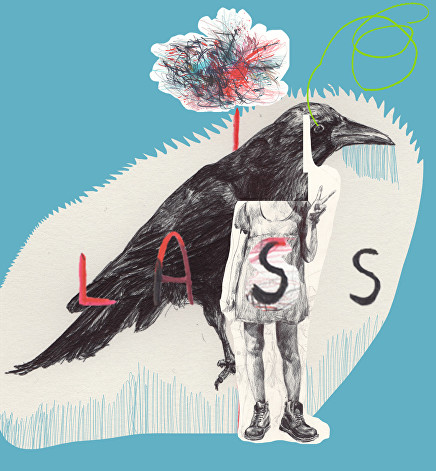

How do these different media and forms of expression relate, correspond and inform each other?
How they relate is also ever changing, and I’m really sorry to go on about money – rather lack of it – but if I have earned money from illustration I feel free to write and the freer I feel the more inclined I am to make art. I don’t think that art and money have any positive relationship whatsoever, yet obviously one needs money. It’s so complicated. Money generally messes things up for me where art is concerned so to get anywhere I cannot think about money when I make art. I wish I had a better or deeper answer to that.
Working in different media, do you find that you express different sides of yourself in each medium, or is there an underlying theme that connects them all?
Being such different forms of expression, the short answer is definitely yes. As an artist I could become totally concerned with visual relationships of shape and marks but then my concerns as a writer are complex so inevitably they meet, or clash, all the time. It is usually to do with audience, words, communication. I’m dissatisfied if I end up with an ‘untitled’ piece; I like to uncover something about intention or unconscious actions – there’s always something going on.
I definitely visit the same themes in my writing and sometimes they have poked through in my art and I’ve ended up with a whole body of work (I once did a project called Charity Shop Orphans where I collected nearly 200 animal ornaments from charity shops, painted and renamed them into new families). I like discarded, apparently valueless objects and qualities that suddenly become valuable. I’m intrigued by what value means, interested in what family means, and a big one for me is freedom. What constitutes freedom and where it is to be found is always cropping up in my work.
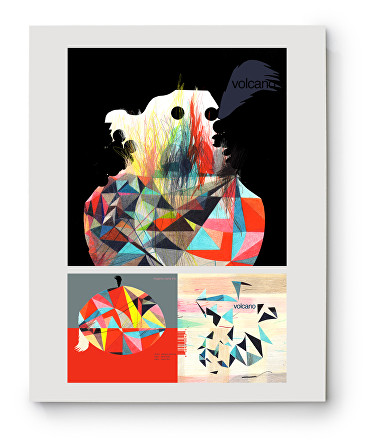

Could you describe your creative process? How do you go from an idea to a finished piece of art?
I see creativity as the key attribute for survival, mentally and otherwise. I have this idea (possibly obscene, given the current situation for those in the most extreme circumstances) that if I were put in a room with nothing I would still fashion something, make some gestural communicative thing. I’m not sure that describes my creative process but I think there is an inherent freedom in that idea, that I could literally make anything and it could exist, even if only in imagination.
To answer more sensibly, if I try to plan something it usually goes wrong – really wrong! Even if I decide, I am going to stick this piece of collage here, it never feels wrong or contrary if as I approach the paper I stick it somewhere completely different! Even if it does turn out wrong, I just adapt it. With painting I don’t feel right until I have gone completely wrong and can begin the process of teasing out something approximate to my intention. I find that exciting, which is essential for me.
Along the same theme I’ve been working collaboratively with an artist friend for over two years. On a pre-arranged date we both meet and exchange a piece of work. We’ve worked with different themes but rejected most of them and all the parameters we’ve attempted to set, and have no idea where it is going. It’s immense fun and in the true spirit of playfulness – this probably describes my creative process quite accurately.
How would you describe your style in three words?
Driven by excitement.


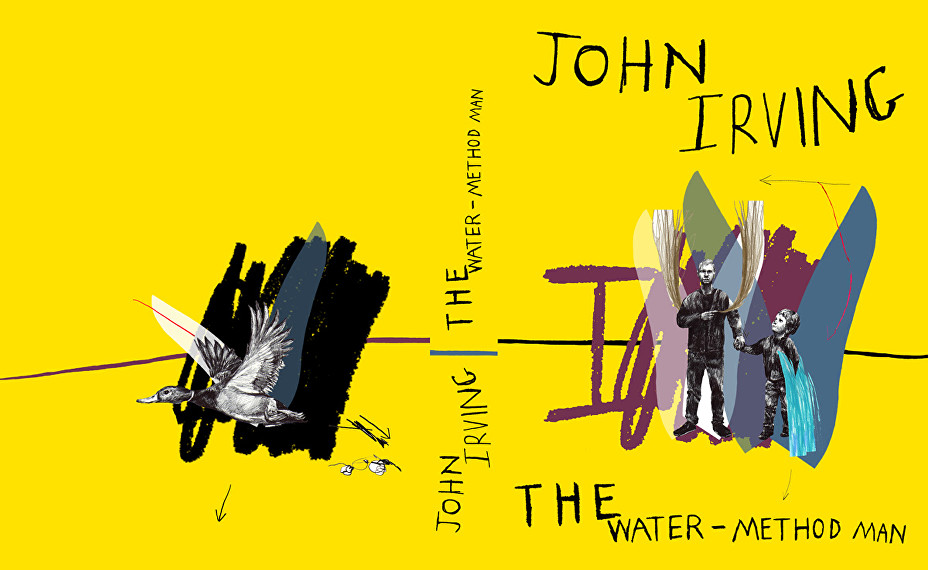
Do you think there is a division between your, I would guess more commercial, illustration work and your personal art practice?
These questions are so amazingly good – they’re making my brain hurt, which I love!
The division is so deep, or at least has in the past been so pronounced, it is unhealthy. A couple of years ago I attempted to heal the rift by going back to 100% analogue illustration, with the aim of not using a computer (and all its limited visual scale and arranged swatches of colour). I would use my drawing skills and only compile a digital collage to make the actual illustration. It sort of worked, I’m getting there. Just need to fully convince the commissioners!
If I am honest I would like to let my most commercial sides go and become a full-time artist, and writer, but it is impossible without more financial security, and it’s hard to let the things go that could still potentially earn money. This is a real dilemma that secure people don’t ever get – the choice is always sacrificial in some way, always about compromise that does battle with your particular psychology.
Who are your major influences?
This is hard! There are so many influences, I guess you want the positive ones!
I’ve never been lucky enough to have a mentor and I don’t really latch onto people in that way, or have been too afraid to ask! I admire many artists, people as diverse as Amy Sillman, Antoni Tapies, David Bomberg, Cy Twombly... but I think my major influences probably come from writers or sometimes filmmakers. I listen to a lot of music and love jazz, old and new – absolutely relate to the drive that jazz musicians have to improvise as an essential part of their creative process. I love the Irish writer Anne Enright (what a sound woman) and Chekhov and Nabakov. Films like Network, Being There, Chance or Coincidence, are ones I watched a lot (but that’s the tip of the iceberg). I’m a re-reader and re-watcher of things to the point of saturation as that’s one of the ways I learn and relate, which tells me I am hugely influenced by other peoples’ work – a thing I’ve always been wary of in case I attempt to imitate them.
Maybe it’s the small things that my mind refuses to part with that end up influencing the most? A wonderful drawing tutor called Tony Corner was the first person who stuck his neck out and made me see that I had some viable ability and artistic intelligence; receiving many many rejections has had a profound influence in terms of testing my commitment to all that I do; the people at Curtis Brown Creative awarding me a scholarship has had an enormous impact.
Believe it or not, I actually might be more interested in the negative ones...
With regard to negative influences the most useful thing I have learnt is to do with identifying, or at least trying to bring to light what is behind the behaviour that has got under my skin. I don't think it's possible to stop the negative influence from getting in -- I like most artists have a pretty permeable layer between me and the world, and no one is immune despite how it might look -- but these days I refrain from giving certain negative people credence. Once I've got the full picture I can shift my efforts in a better direction, and if I can't change things immediately I can at least stop wasting energy on those particular negative people or situations.

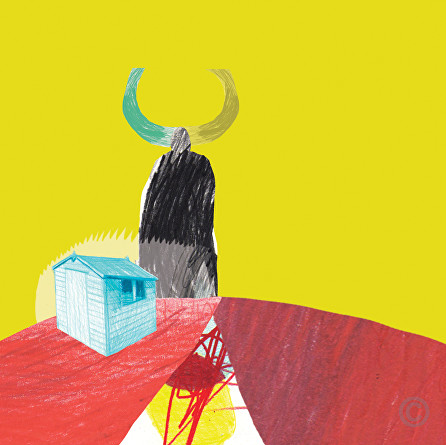
You occasionally participate in our collage challenge. Is collage a technique you use often?
Yes, my current illustration portfolio is digital collage and all the material is generated by drawing. It’s a nice way of working as I can combine my different drawing styles and be quite experimental. I also love working in an analogue way and make quite a lot of personal work that I don’t often show using mixed media and collage. Here I will use anything or be inspired by found or ephemeral things.
What about collage speaks to you?
I love the chance of cutting out a shape and seeing the negative, unexpected piece in the other hand is better and using that; or suddenly seeing the value of found marks on a scrap of paper; or finding something in the street - before lockdown I made it my habit to pick up anything interesting, a recent one being a handwritten page by a small child that had such a bold quality, I would not have been able to create that myself.
I also love the natural layering system of analogue collage, which used with mixed media can be hugely sophisticated and subtle in aesthetics and communication.
Emma Harding ︎ ︎
Interview: Petra Zehner
